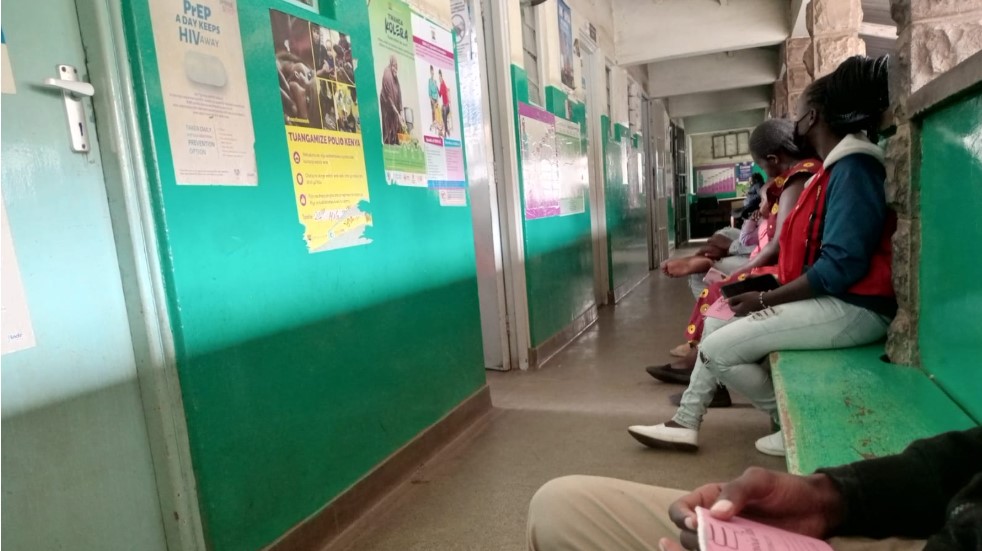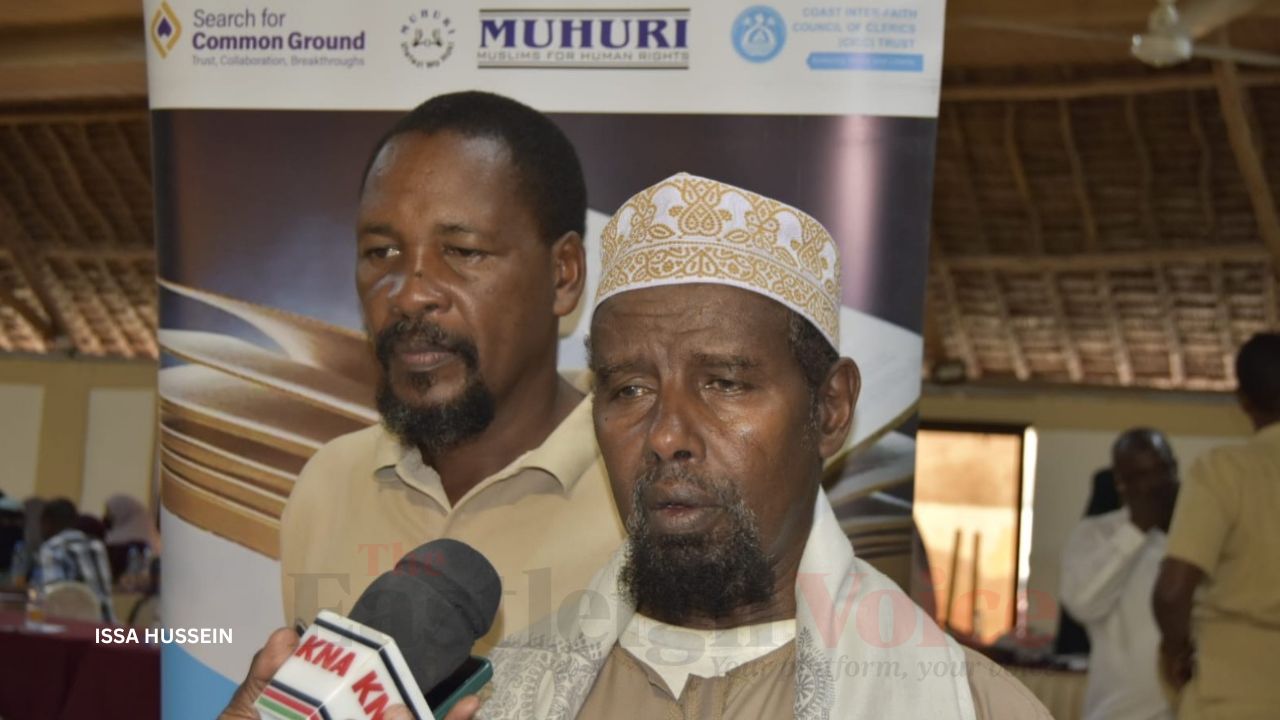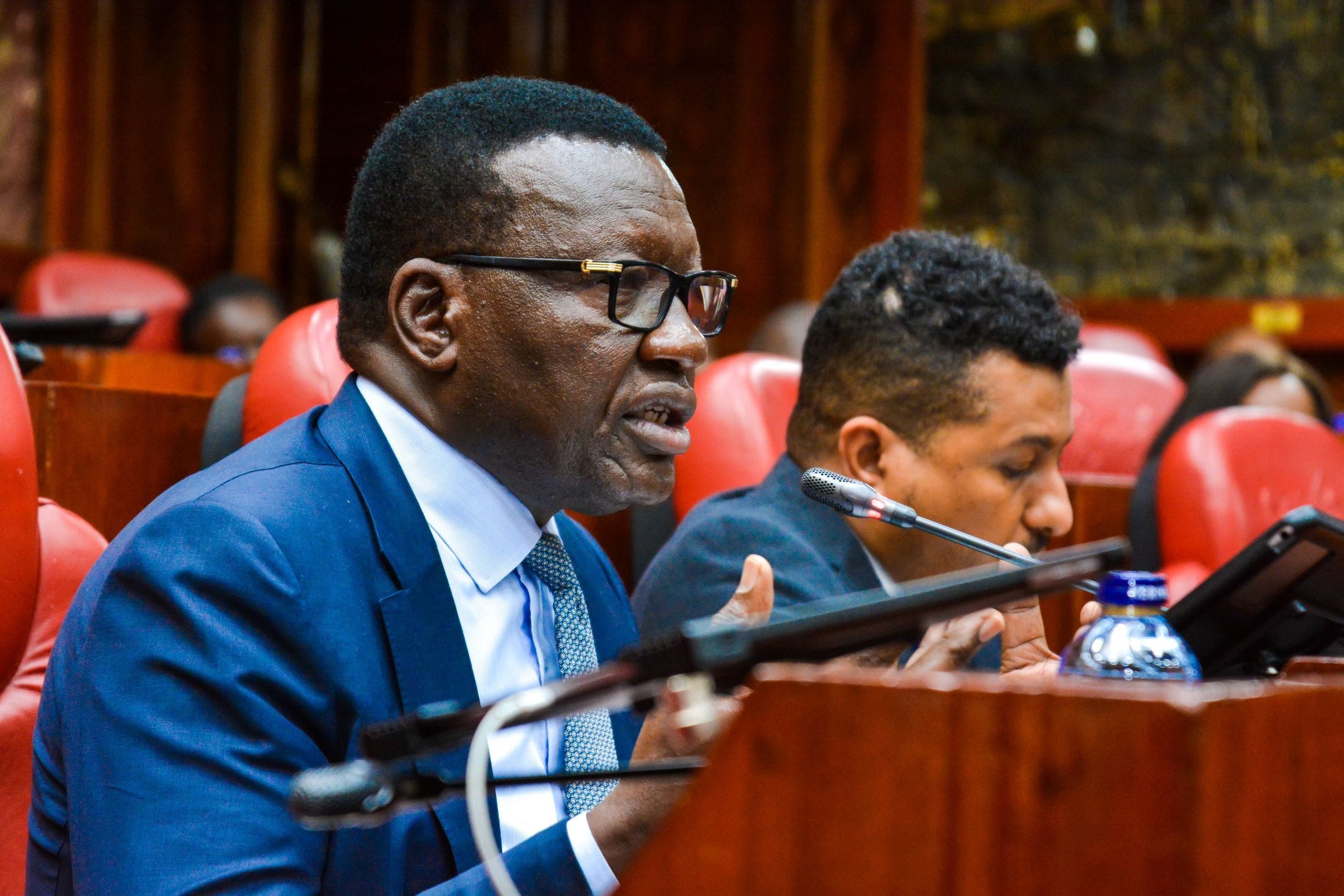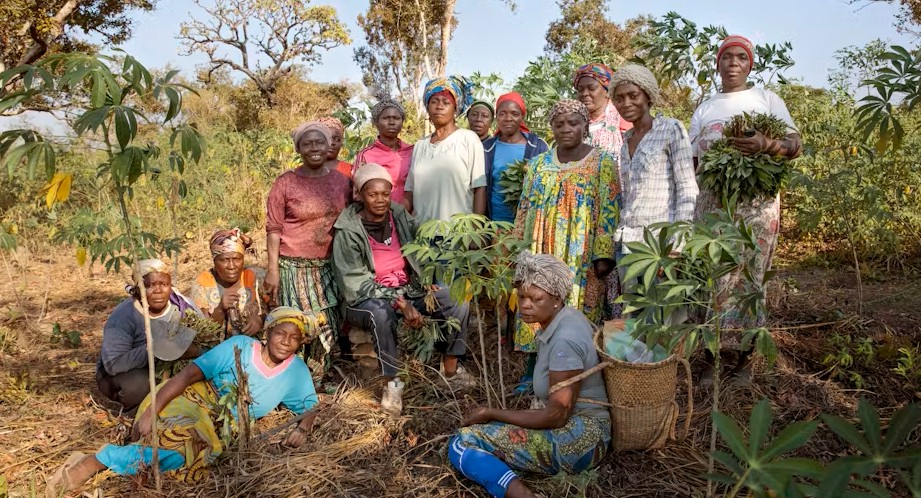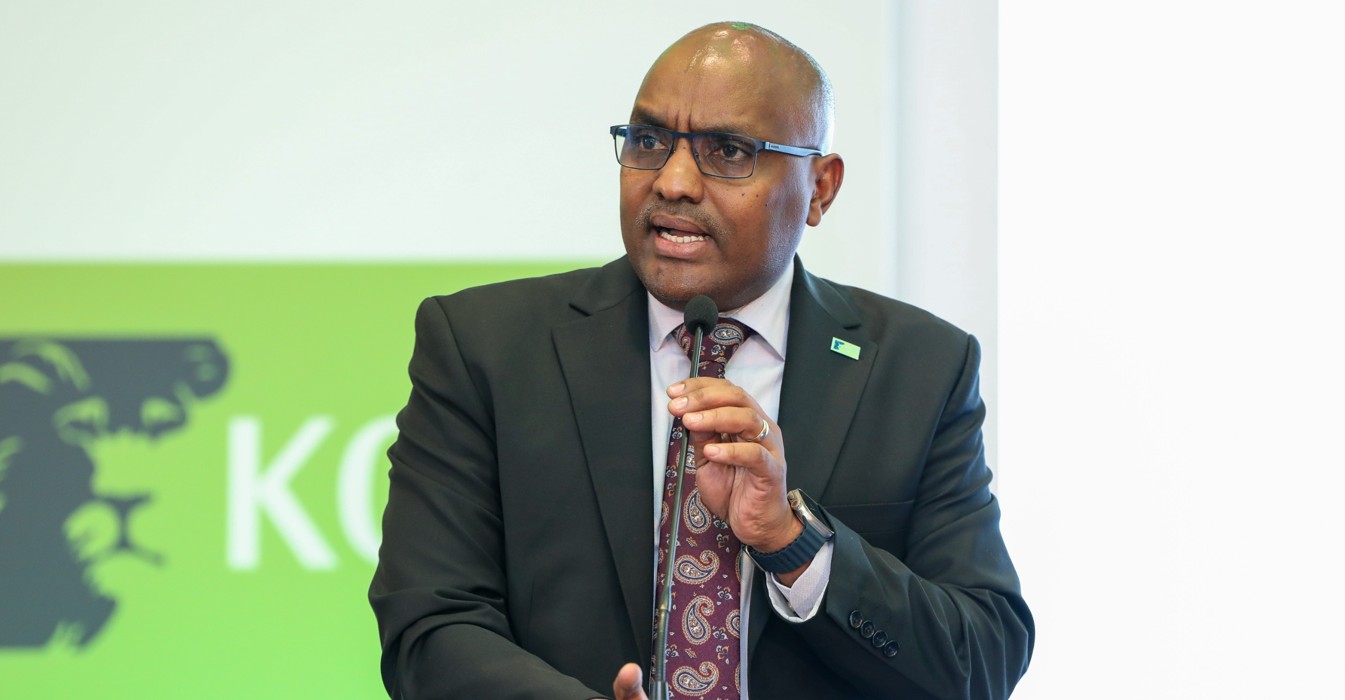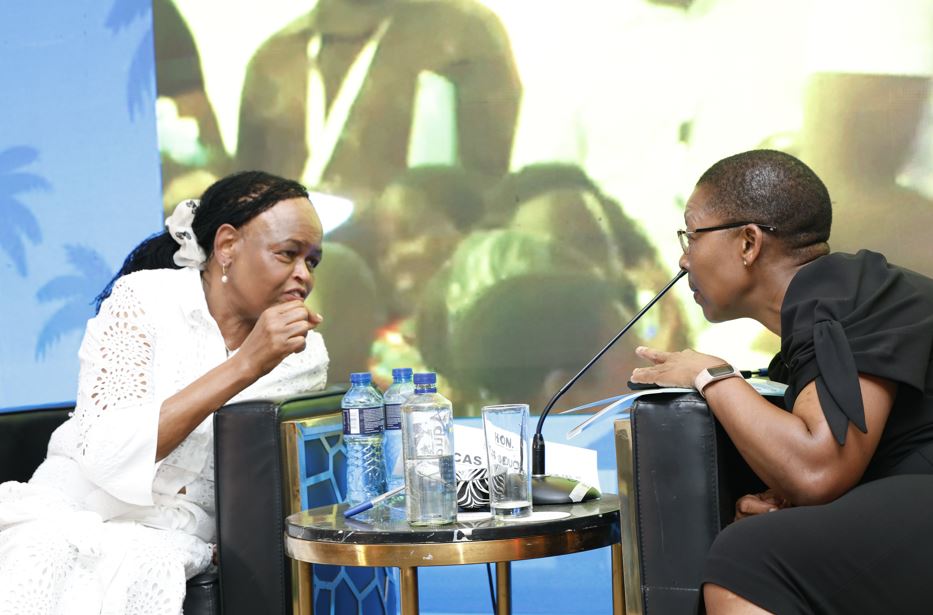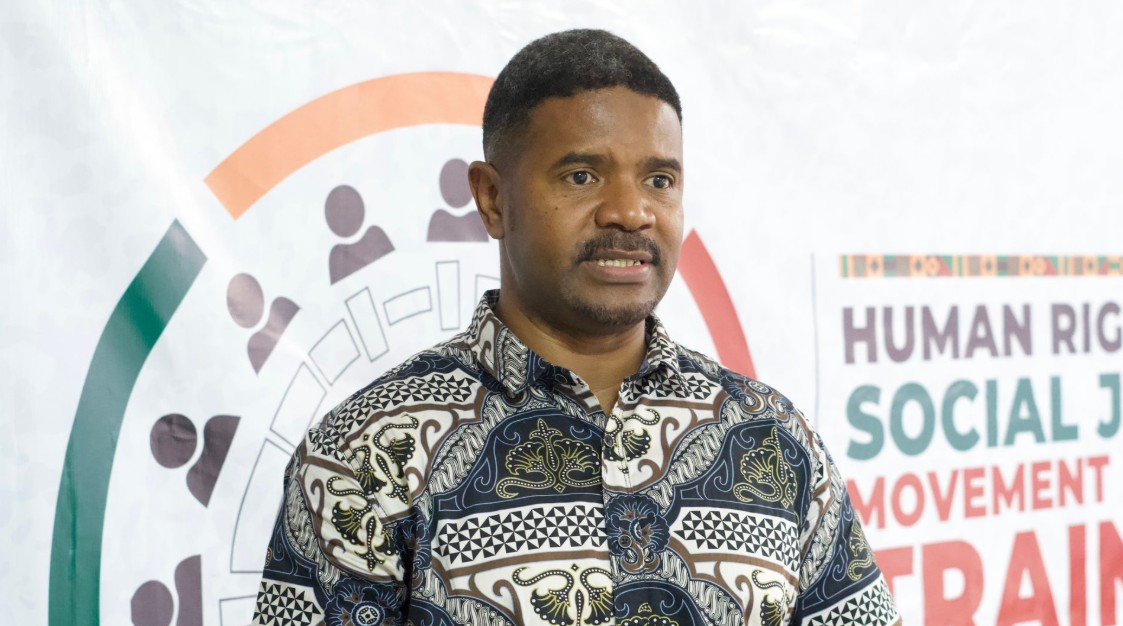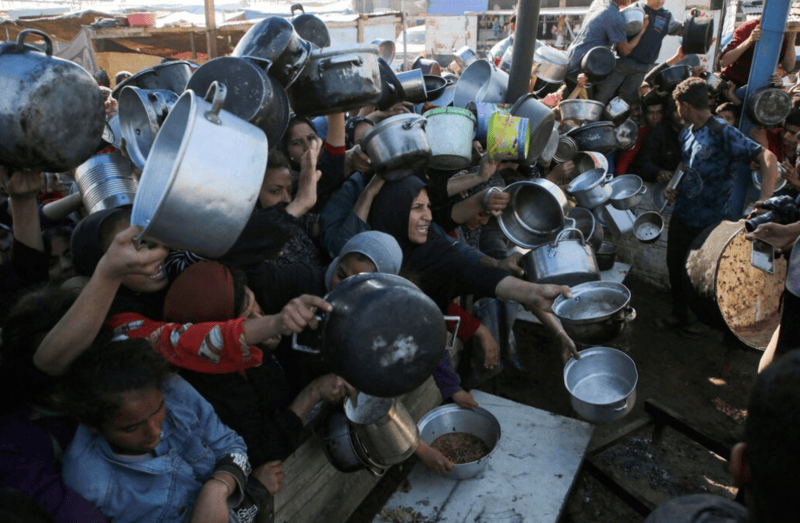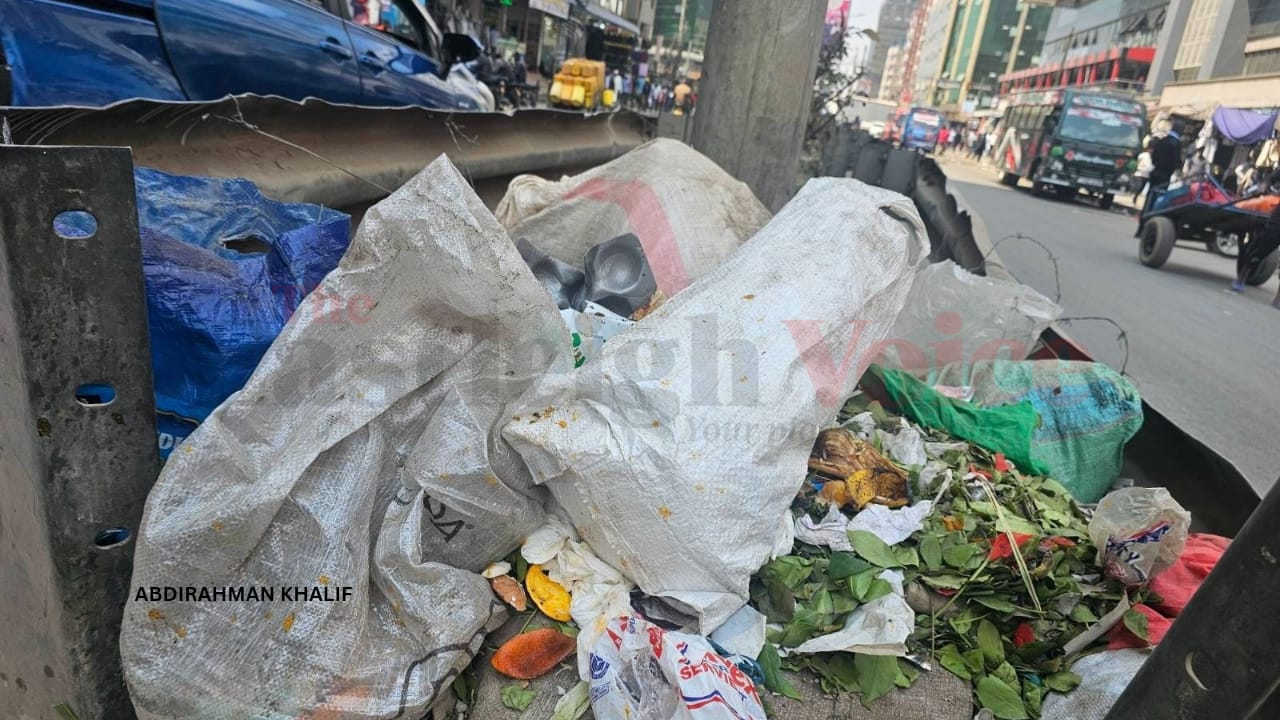Garissa unveils irrigation policy to boost food security, climate resilience and economic growth
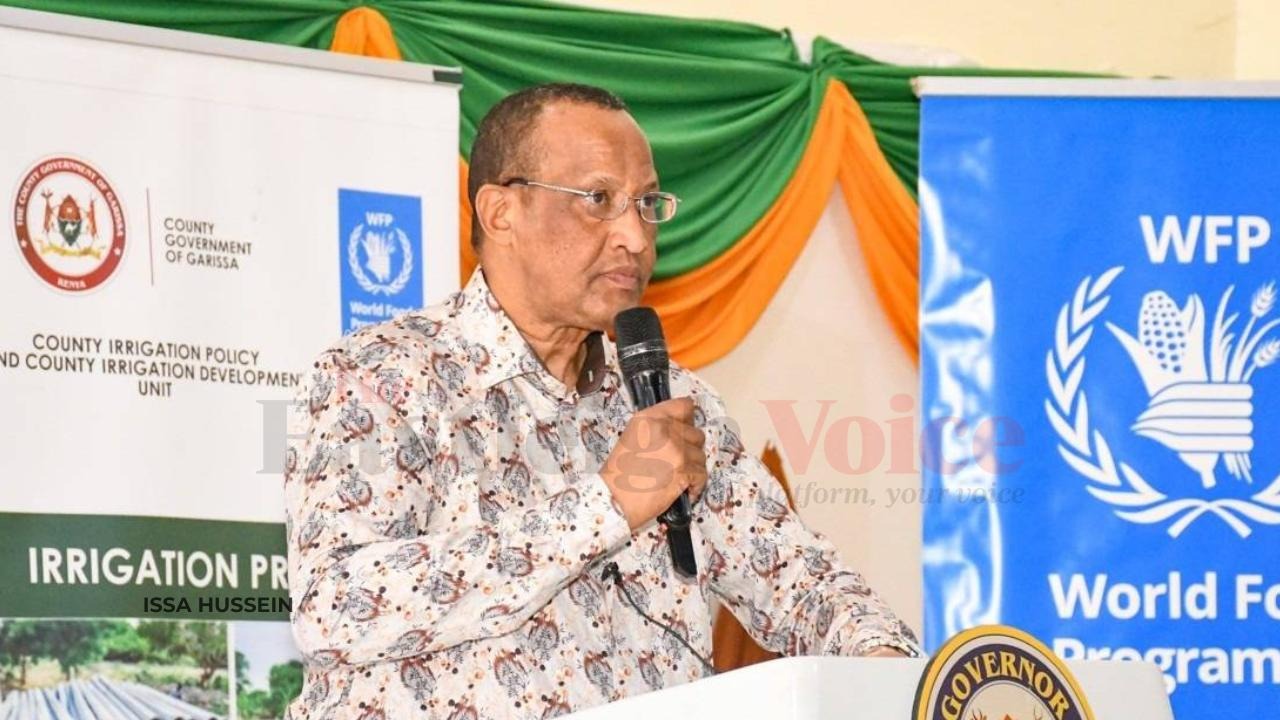
Developed with technical and financial support from the World Food Programme, the policy focuses on expanding the acreage under irrigation, improving water-use efficiency, upgrading infrastructure, and attracting private investment.
Garissa County has launched a new irrigation policy that sets out a roadmap for sustainable irrigation development aimed at enhancing food security, building climate resilience, and driving economic growth.
Developed with technical and financial support from the World Food Programme (WFP), the policy focuses on expanding the acreage under irrigation, improving water-use efficiency, upgrading infrastructure, and attracting private investment.
More To Read
- Five-year interfaith programme boosts Muslim-Christian unity in Garissa
- 17 areas of Sudan "at risk of famine": UN spokesman
- Cholera kills 40 in Sudan’s worst outbreak in years
- WFP slashes food rations by 80 per cent in Kakuma, Dadaab refugee camps
- Sudan: El-Fasher faces famine as supplies cut off, UN says
- One dead, two officers injured as protests rock Kakuma refugee camp
Garissa Governor Nathif Jama, who presided over the event as the chief guest, said the policy document would accelerate the county’s vision of establishing a vibrant, innovative, and commercially oriented irrigation sector.
The governor noted that the plan would create an enabling environment for irrigation development, ultimately improving livelihoods and promoting socio-economic progress.
"Now our partners will be able to design and implement high-impact programs that will help our county to achieve sustainable irrigation for food security, in collaboration with the national government as a shared responsibility," he said.
He pointed out that Garissa County has vast unexploited arable land with immense irrigation potential. Areas identified for development include the Tana Basin, Gababa, Dagega, Fafi, and Waso plains.
Nathif further announced that the county government would prioritise implementation of the policy by increasing water availability through harvesting, storage, and optimising usage for maximum efficiency.
"We will mobilise financial resources by increasing county government budgetary allocation to at least 2 per cent of the county's annual development budget, and promote investment by the national government, development partners, private sector, farmers, and other stakeholders to facilitate sustainable development of the irrigation sector," he stated.
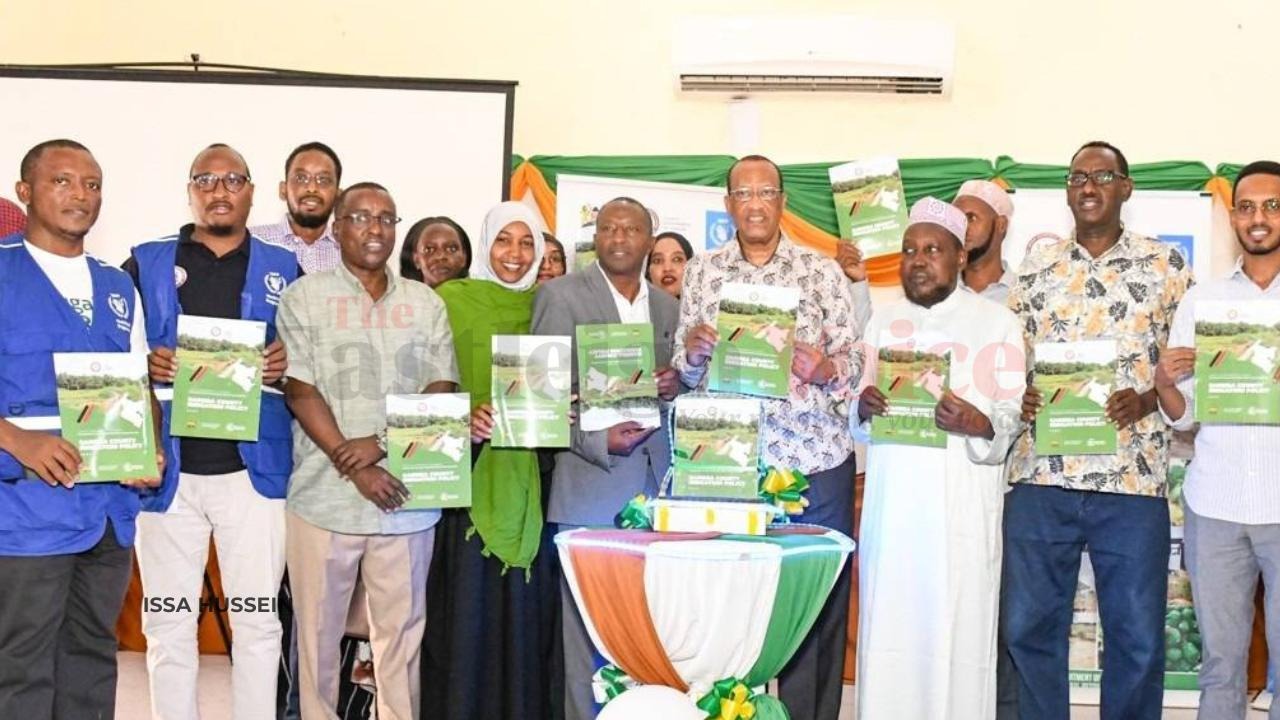 Stakeholders, led by Garissa Governor Nathif Jama, display copies of the newly launched county irrigation policy. (Photo: Issa Hussein)
Stakeholders, led by Garissa Governor Nathif Jama, display copies of the newly launched county irrigation policy. (Photo: Issa Hussein)
Irrigation farming
He stressed the importance of adopting an integrated approach that supports environmentally sustainable and commercially viable irrigation farming, including crop cultivation, livestock, and aquaculture.
The governor also emphasised the need for a robust legal, institutional, and regulatory framework to guide the sector, adding that research, innovation, and technology development would be enhanced in line with the policy’s objectives.
Under the policy, the county plans to upgrade existing irrigation infrastructure, incorporate renewable energy sources such as wind and solar, and extend targeted support to vulnerable communities.
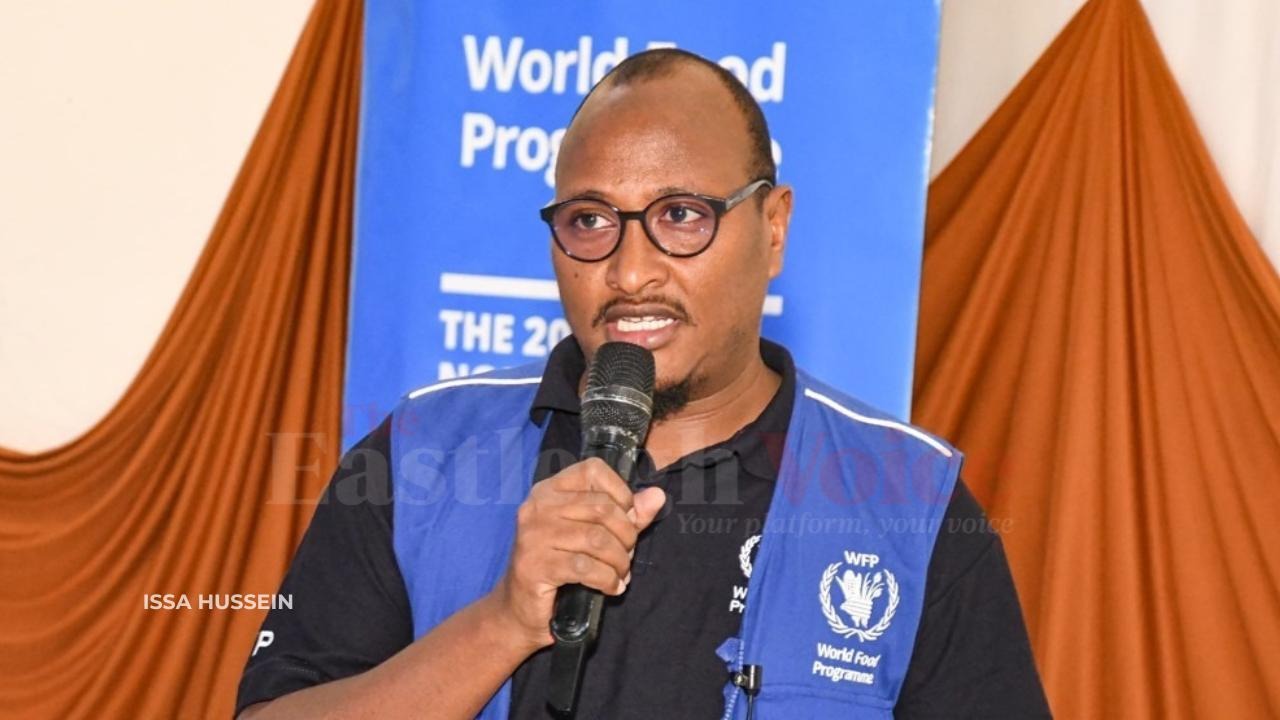 Yussuf Ali, WFP head of the regional field office, speaking during the launch of the Garissa Irrigation Policy. (Photo: Issa Hussein)
Yussuf Ali, WFP head of the regional field office, speaking during the launch of the Garissa Irrigation Policy. (Photo: Issa Hussein)
Farmer empowerment
WFP regional field office head Yussuf Ali called for increased farmer empowerment and the full utilisation of the county’s arable land.
"Garissa County can feed its population and a larger population beyond the county if we remain committed to boosting agricultural productivity in the region," he noted.
He also outlined WFP’s ongoing support for local farmers, aligning with broader goals of food security, economic transformation, and climate change adaptation.
Ngumi Kani, Director of Quality Assurance and Licensing at the National Irrigation Authority, praised Garissa for becoming the first county to align its irrigation policy with the national framework.
"Many counties will come for a benchmarking, you need to mobilise resources, engage the county assembly and donor partners to implement the policy," he said.
He encouraged full collaboration with the National Irrigation Authority, which, he said, has visionary plans for the region.
Optimising irrigation
He cited the National Irrigation Sector Investment Plan (NISIP), the National Irrigation Policy (2017), and the Bottom-Up Economic Transformation Agenda as part of a broader national effort to expand and optimise irrigation.
Garissa County Assembly Speaker Abdi Idle assured both the executive and development partners of the assembly’s commitment to supporting the implementation of the new policy.
Garissa Farmers Network chairperson Abdullahi Abdi described the policy launch as a major milestone for local farmers.
"We are proud that the sector is getting attention, a devastating drought has forced many to drop out of livestock keeping and were willing to venture into crop farming, once given the necessary support," he said.
He urged for the swift implementation of the policy and called for adequate resource mobilisation to bring its goals to fruition.
Top Stories Today
